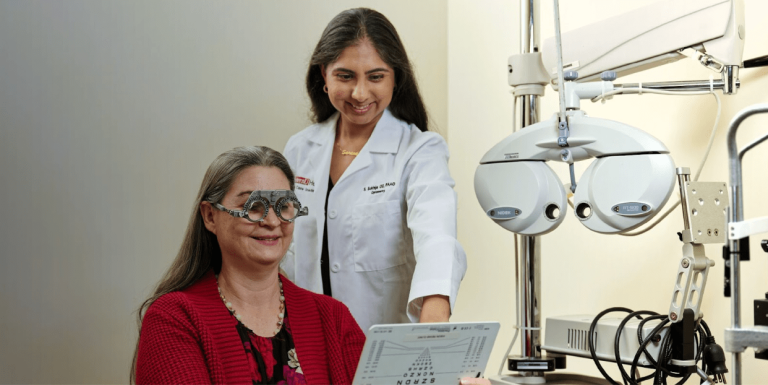
Florence Nightingale is regarded as the pioneer of modern nursing. The Italian-born nursing icon made remarkable contributions to the healthcare sector around the 19th century. She revolutionized patient care and laid a strong foundation for contemporary nursing practices. Nightingale served as a nurse during the Crimean War, where she made some observations regarding how environmental conditions affected patients’ mortality rates. It gave birth to her environmental theory of nursing. In this article, we explore how this environmental theory emphasizes the importance of the physical environment in patient care.
Exploring the Florence Nightingale environmental theory
Florence Nightingale’s environmental theory of nursing is a patient-centered theory that focuses on patient care rather than the nursing process or the relationship between nurses and their patients. The theory suggests that the nursing model must be streamlined to fit individual patients’ needs, stressing that environmental factors affect patients uniquely, depending on their situations, and nurses must tackle these factors based on each case separately to ensure the best care is given to every patient according to their needs.
Nightingale’s environmental theory has 10 significant concepts that many identify as Nightingale’s canon. They are ventilation and warming, light and noise, cleanliness of the area, health of houses, beds of bedding, variety, food, offering hope and advice, personal hygiene, and observation. The iconic nurse observed that unclean environments deteriorate health, and altering the environment to improve physical conditions can enhance healing in patients.
Before Florence Nightingale’s environmental theory and input in the healthcare sector, hospitals were characterized by overcrowding, inadequate sanitation, and poor ventilation. Infection rates were alarmingly high, and patient mortality was increasing. Her environmental theory of nursing brought about drastic change as she facilitated a new approach to patient care. Her theory is deeply rooted in the belief that the physical environment is crucial to improved patient health and recovery.
She postulated that a healing environment with a high level of cleanliness, optimal lighting, and proper ventilation can speed up recovery and alleviate suffering. She further stressed the importance of nursing practice in ensuring the environment remains in the best condition to aid healing.
Emphasizing the role of the physical environment in patient care
The central idea of Nightingale’s theory is that the physical environment is not a mere backdrop to patient care. Instead, it is an active determinant. She argued that healthcare settings should follow a design and maintenance regimen that promotes well-being. This position has been proven right as the modern healthcare approach shifted towards her line of thought. Her view of the environment as a therapeutic factor that aids recovery is the groundbreaking discovery that facilitated the introduction of modern nursing and the departure from conventional healthcare practices.
Recorded improvements since the change of approach have proved Nightingale’s environmental theory to be right and her emphasis on the importance of the physical environment on patient care to be correct. Since the healthcare sector started factoring environmental factors into their treatment approach, disease spread has been better curbed, mortality rates have reduced, and healthcare outcomes have improved, among others. It clearly shows how important the physical environment is to patient care and how Nightingale’s environmental theory of nursing emphasizes this importance, which has helped change the course of things for the better.
The nursing icon stresses the need for meticulous attention to detail in the healthcare sector. Pointing out the need to optimize patients’ physical environment to support their recovery. Control temperature, prevention of cross-contamination, arrangements of bed, and amongst other little details Nightingale believes require attention in a patient’s physical environment.
While her environmental theory was conceived in the 19th century, it has undergone several evolutions and adaptations in modern medical practice. Key elements of this theory, like infection control, effective hand hygiene, and aseptic techniques, remain a core part of contemporary healthcare practices. Her advocacy for holistic patient care has influenced several nurses’ theories and education down the line.
Key environmental factors in Nightingale’s environmental theory
Florence Nightingale identified five core environmental factors she believes affect patients’ health in her theory. They include unpolluted or fresh air, clean water, functioning drainage, light, and cleanliness or sanitation. We explore these factors based on her theory and how they impact patients’ health.
Air
“Ensure the air he breathes is as pure as the external air without chilling him.” According to Nightingale, allowing patients to breathe their air would make them remain sick, and individuals breathing their own air may fall ill. She expressed concerns about noxious air odors and was an open critic of fumigation, claiming that the offensive source of the fumigants must be removed. She stressed that poor ventilation, bad air quality, and unnecessary exposure to too much cold air can all aggravate a patient’s condition.
Nightingale’s concern about air quality has been proven right over time, as many diseases are airborne, and inhaling polluted or contaminated air increases the chances of getting these diseases, leading to failing health. Proper ventilation also helps control temperature around patients, and at optimal temperature, they respond well to treatments.
Water
According to Nightingale’s theory, “Impure well water is mostly used for domestic purposes, which often results in epidemic diseases causing individuals using such water to suffer.” She stressed the need for potable water to avoid spreading disease. Water is an essential part of the physical environment, and according to her theory, lack of access to clean or pure water can contribute to failing health. Patient care for individuals with no access to pure water will seem ineffective as the root cause of the problem is still persistent. Nightingale’s theory emphasizes this point, sharing that patient care doesn’t start and end within the healthcare setting alone; it begins with the patient’s physical environment.
Proper drainage system
“All the while, the sewer may be nothing but a laboratory from which disease and sickness enter the house.” Nightingale’s account on drainage systems stresses the importance of ensuring the free-flowing of drainage around patients’ physical environments. The drainage system makes up part of a physical environment, and prioritizing a well-established drainage channel can improve patient care quality, according to Nightingale’s theory.
Light
With emphasis on direct sunlight, Nightingale stresses that “the benefits of light in treating disease are essential.” She believes light is second to fresh air and that direct sunlight exposure can improve healing. Nurses who have acted on this theory have recorded good results, but it’s not all sickness or disease that exposure to light can help alleviate the pain.
Cleanliness (sanitation)
“Preserving cleanliness is the greater part of nursing.” In her theory, Nightingale emphasizes the importance of having a clean physical environment and how it boosts health and response to treatment. Beyond a clean physical environment, she also stresses personal cleanliness, saying, “It’s necessary to keep pores of the skin free from all obstructing excretions” and “Every nurse ought to wash hands frequently during the day.” Prioritizing patients’ and care providers’ hygiene is essential and has become a part of modern nursing. It is another proof that Nightingale’s theory emphasizes the physical environment’s importance in patient care.
Impacts of Florence Nightingale’s environmental theory on modern healthcare
Modern nursing became a thing after Florence Nightingale’s environmental theory of nursing. Her emphasis on the physical environment left an indelible mark on this field of study, and it’s evident in today’s practices. The modern healthcare facility design, infection control protocols, and patient-centered care approach are all the result of her insights. Even in the academic aspect, Florence Nightingale still gets her flowers. Online AGPCNP programs, such as the MSN at the University of Indianapolis, reference Nightingale’s theory and talk about her strides when it comes to modern nursing. By completing this program, graduates can open the door to advanced career opportunities in the field of nursing. Nurse practitioners have a higher level of responsibility and autonomy in patient care, allowing them to diagnose, treat, and manage patients with complex healthcare needs.
Florence Nightingale’s principles have become foundational in modern healthcare practices, emphasizing the importance of maintaining a healing environment. Most contemporary healthcare practices mirror her principles: hospitals leverage ventilation to fight airborne diseases, prioritize cleanliness, implement effective infection control measures like hand hygiene and sterile techniques, etc. All these are drawn directly from her pioneering work. Additionally, her focus on holistic patient care has been a great inspiration and aligns with the increasing recognition of the relationship between the mind and the body while healing.
Critiques and limitations of Florence Nightingale’s environmental theory
Like every other theory, Nightingale’s own is not without its limitations, according to critiques. Despite its significant contributions to nursing and healthcare, critics have argued that her theory may be too simplistic to be accurate in the complex, modern healthcare system. Also, some have argued that her emphasis on a rigidly controlled physical environment contradicts the patient-centered care approach, which advocates for patients’ autonomy and freedom of choice.
Critics have also identified different limitations. They believe maintaining optimal cleanliness and ventilation in this modern day is quite resource-intensive, and balancing the need for infection control with patient-centered care can be complex to achieve. They stress that adapting her principles to different cultures and healthcare contexts will also require thoughtful considerations to avoid undesirable intrinsic effects. While critics have been vocal about their concerns, it has not changed the evolution and massive change Nightingale and her theory have brought to modern nursing.
However, there’s always room for adjustments and tweaks for her principles to work perfectly in the contemporary healthcare system. Top nursing professionals believe only those with a rigid mindset will find the principles impossible to implement in modern healthcare systems. While others believe the adaptability of her principles lies in her ability to keep modifying them to fit the ever-changing healthcare landscape, the majority have said the difference in sophistication between the healthcare system of then and now doesn’t render Nightingale’s theory invalid, as her theories tackle the basis of most health issues—poor physical environmental conditions.
Adapting Florence Nightingale’s environmental theory of nursing into modern healthcare practices
The COVID-19 pandemic was a great test of the healthcare system’s strength, and the ways that the world responded align so much with Florence Nightingale’s theory. It indicates that the theory will remain relevant irrespective of the healthcare sector’s dynamism. The theory remains the building block for many healthcare advancements, and regardless of the direction modern healthcare is heading, the foundation will stay the same.
While Nightingale’s theory was more individualistic, generalizing it has been a potent way of adapting it to the modern healthcare system. General hospital buildings and patient rooms are well-ventilated and have a constant electricity supply. Accessible water quality is far better than back then, and awareness of cleanliness and sanitation is more widespread. It has contributed to improved healthcare outcomes.
There’s an increasing recognition and acceptance of patient-centered care in the healthcare landscape, which aligns with Nightingale’s holistic treatment approach. It indicates that her theory’s adaptability to modern healthcare practices can be seamless.
Better physical environmental conditions yield improved patient care outcomes
Over time, Florence Nightingale’s environmental theory has proven to be true. It has revolutionized modern nursing and healthcare practices, facilitating increased healthcare outcomes. By focusing on maintaining excellent physical environmental conditions, nurses can improve patients’ health and alleviate suffering. Adequate ventilation, hygienic practices, clean surroundings (sanitation), and uninterrupted availability of light are great physical environmental conditions. These conditions have been proven to improve patient care over the years, just like Florence Nightingale’s theory emphasized.






Thank you, I have recently been looking for
information approximately this subject for a long time and yours is the
greatest I’ve found out so far. But, what concerning
the conclusion? Are you sure about the source?
Have you ever considered creating an e-book or guest authoring on other websites?
I have a blog based upon on the same ideas you discuss and would
really like to have you share some stories/information. I know my
viewers would enjoy your work. If you’re even remotely interested, feel free to shoot me
an e mail.
I’ve been surfing online more than three hours today, yet
I never found any interesting article like yours. It’s pretty worth
enough for me. In my view, if all webmasters and bloggers made good content as you did, the internet will be much more useful than ever before.
Hi there, I enjoy reading all of your post. I wanted to write a little comment
to support you.
I relish, lead to I found just what I used to be looking for.
You have ended my four day long hunt! God Bless
you man. Have a great day. Bye
I get pleasure from, result in I found exactly what I was looking for.
You’ve ended my 4 day long hunt! God Bless you man. Have a great day.
Bye
Hi! This is my first visit to your blog!
We are a collection of volunteers and starting a new initiative in a community in the same niche.
Your blog provided us useful information to work on. You
have done a wonderful job!
When I initially commented I seem to have clicked on the -Notify me when new comments are
added- checkbox and now every time a comment is added I recieve 4 emails with the exact same comment.
There has to be a way you are able to remove me from that
service? Thanks a lot!
Hi to every body, it’s my first visit of this web site; this website carries awesome
and really fine information for visitors.
It’s the best time to make a few plans for the longer term
and it’s time to be happy. I’ve learn this publish and if
I may just I want to counsel you some attention-grabbing things or advice.
Perhaps you could write next articles relating to this article.
I want to read more issues approximately it!
Ready to improve your website’s search engine ranking? Visit https://seoshop.xmc.pl for premium backlinks that will take your SEO efforts
to the next level. Our backlinks are sourced from reputable domains and are designed to provide your
site with the authority and visibility it needs to succeed.
With our high-quality links, you can expect to see significant improvements in your site’s organic traffic and search engine ranking.
Don’t wait—explore our range of packages and discover the perfect solution for
your SEO needs today!
naturally like your web site however you have to test
the spelling on quite a few of your posts.
Many of them are rife with spelling problems and I in finding it
very troublesome to tell the reality nevertheless I’ll certainly come back again.
Hi, for all time i used to check weblog posts here early in the
daylight, because i like to find out more and more.
my web site … check this out
Thanks for sharing such a pleasant opinion, post is good, thats why i have read it entirely สล็อต Jili